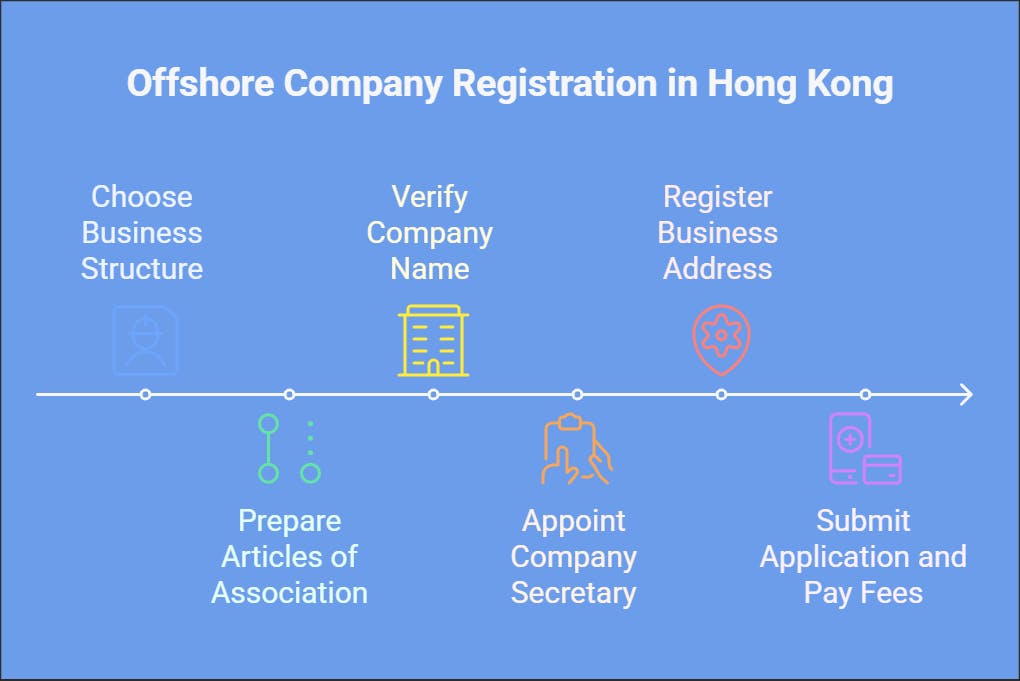Protect Your Business with Secure Offshore Business Formation for Wealth Management
Protect Your Business with Secure Offshore Business Formation for Wealth Management
Blog Article
A Comprehensive Overview to Navigating Offshore Organization Formation Successfully
In the world of international entrepreneurship, forming an overseas service offers both one-of-a-kind opportunities and intricate challenges. Selecting the excellent territory is the very first vital action, calling for a mindful equilibrium of legal stability, desirable tax obligation policies, and economic safety. As potential financiers navigate through the complexities of regulatory and lawful frameworks, recognizing the subtleties of each can make a substantial distinction in the effective facility and longevity of an overseas entity. What follows are essential considerations and calculated approaches that can help in maximizing the advantages while decreasing the threats entailed.
Selecting the Suitable Offshore Jurisdiction
When selecting an overseas jurisdiction for company development, numerous vital factors need to be taken into consideration to guarantee legal compliance and functional effectiveness. Taxation policies are extremely important; some territories supply low or no tax obligation prices, which can be extremely advantageous for revenue retention. One must additionally review the political security of the region to prevent potential threats that can impact service procedures negatively.
Furthermore, the online reputation of the territory can dramatically impact the understanding of the organization internationally. Choosing a jurisdiction with a solid regulatory credibility could promote smoother business relationships and banking transactions internationally. In addition, the simplicity of doing business, consisting of the simplicity of the registration process and the accessibility of knowledgeable local solutions, ought to be assessed to ensure that the operational needs are sustained properly.
Understanding Legal and Governing Structures

Lawful structures in offshore jurisdictions are typically developed to draw in foreign financial investment with economic motivations such as low tax rates and simplified reporting processes. These benefits can come with rigid regulations intended at protecting against money laundering and monetary fraud. Financiers have to navigate these laws meticulously to avoid legal challenges.


Developing Your Offshore Company Structure
After understanding the lawful and regulative structures necessary for overseas company operations, the next important step is to develop the proper business structure. Typical structures include International Company Corporations (IBCs), Limited Liability Firms (LLCs), and partnerships.
Picking the best jurisdiction is equally crucial. Elements such as political security, legal system, and international relationships have to be considered to make sure a helpful and protected environment for the company. Popular areas like the Cayman Islands, Bermuda, and Luxembourg offer different benefits customized to different business requirements, including robust legal systems and positive governing landscapes.
Inevitably, lining up the organization framework with critical corporate goals and the picked jurisdiction's offerings is important for optimizing the advantages of offshore consolidation.
Handling Compliance and Taxation in Offshore Operations
Managing compliance and taxes is a vital aspect of preserving an offshore company. Offshore Business Formation. Making sure adherence to the policies of the host nation, along with worldwide requirements, can mitigate lawful threats and improve operational authenticity. Offshore firms have to remain notified regarding the tax obligation obligations and reporting demands in their selected jurisdiction. This consists of recognizing the ramifications of double tax arrangements and figuring out whether the company gets approved for any kind of exceptions or motivations.
Business owners ought to likewise invest in durable compliance programs that consist of regular audits and worker training to copyright company governance. Involving with legal and financial experts who focus on global company legislation can provide very useful guidance and assistance browse the intricacies of cross-border taxes. These professionals can help in establishing effective tax obligation structures that line up with international practices while enhancing monetary responsibilities.
Inevitably, persistent monitoring of conformity and taxation is necessary for making certain pop over to this web-site the long-term success and sustainability of an offshore business.
Conclusion
To conclude, the successful development of an offshore organization rest on cautious consideration of territory, lawful compliance, and the ideal business structure. By meticulously choosing a stable and positive setting, understanding and adhering to lawful frameworks, and handling recurring conformity and tax, organizations can develop themselves properly on the worldwide stage. This critical strategy makes sure not only operational authenticity but likewise places business for lasting growth and lasting success in the international market.

Report this page